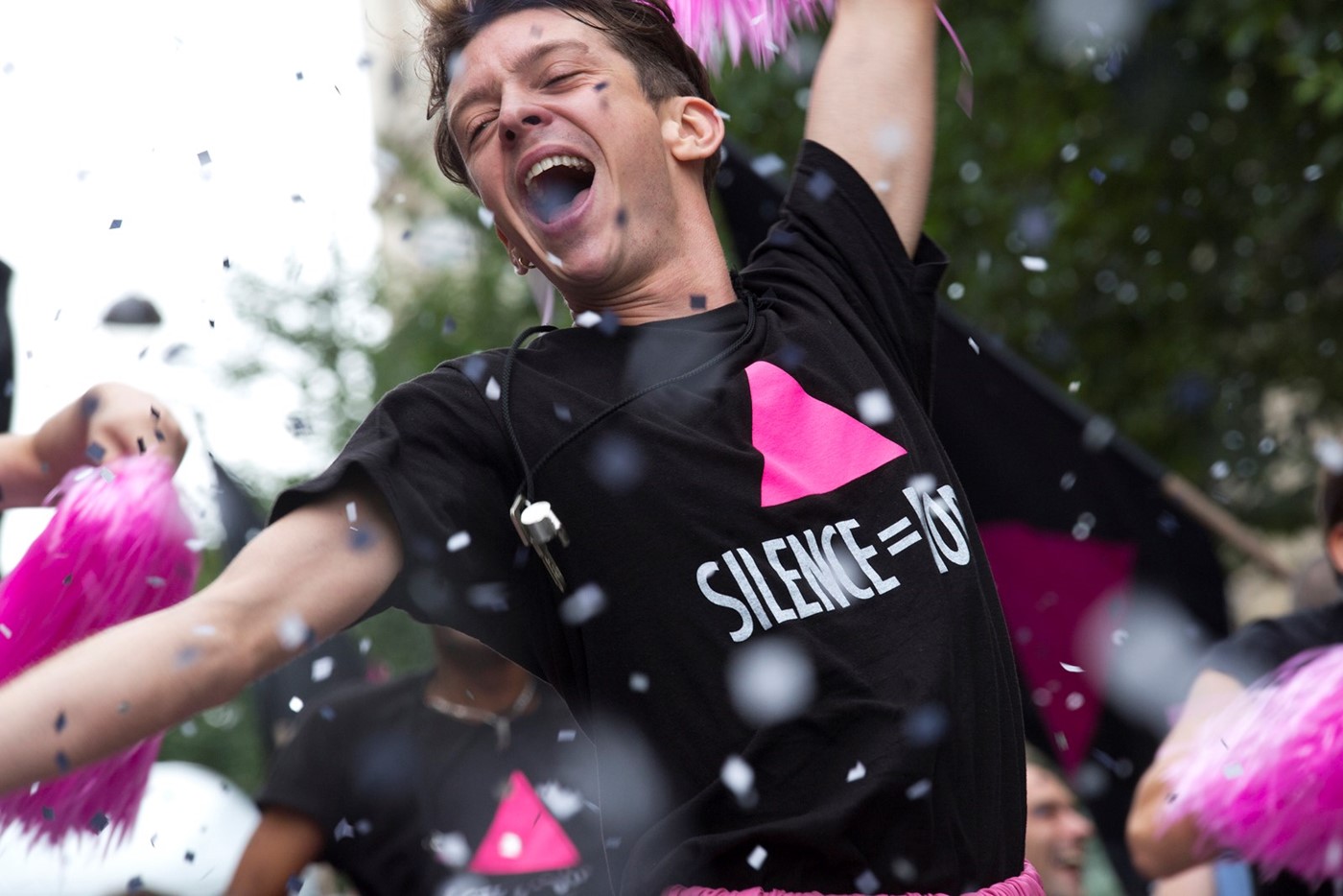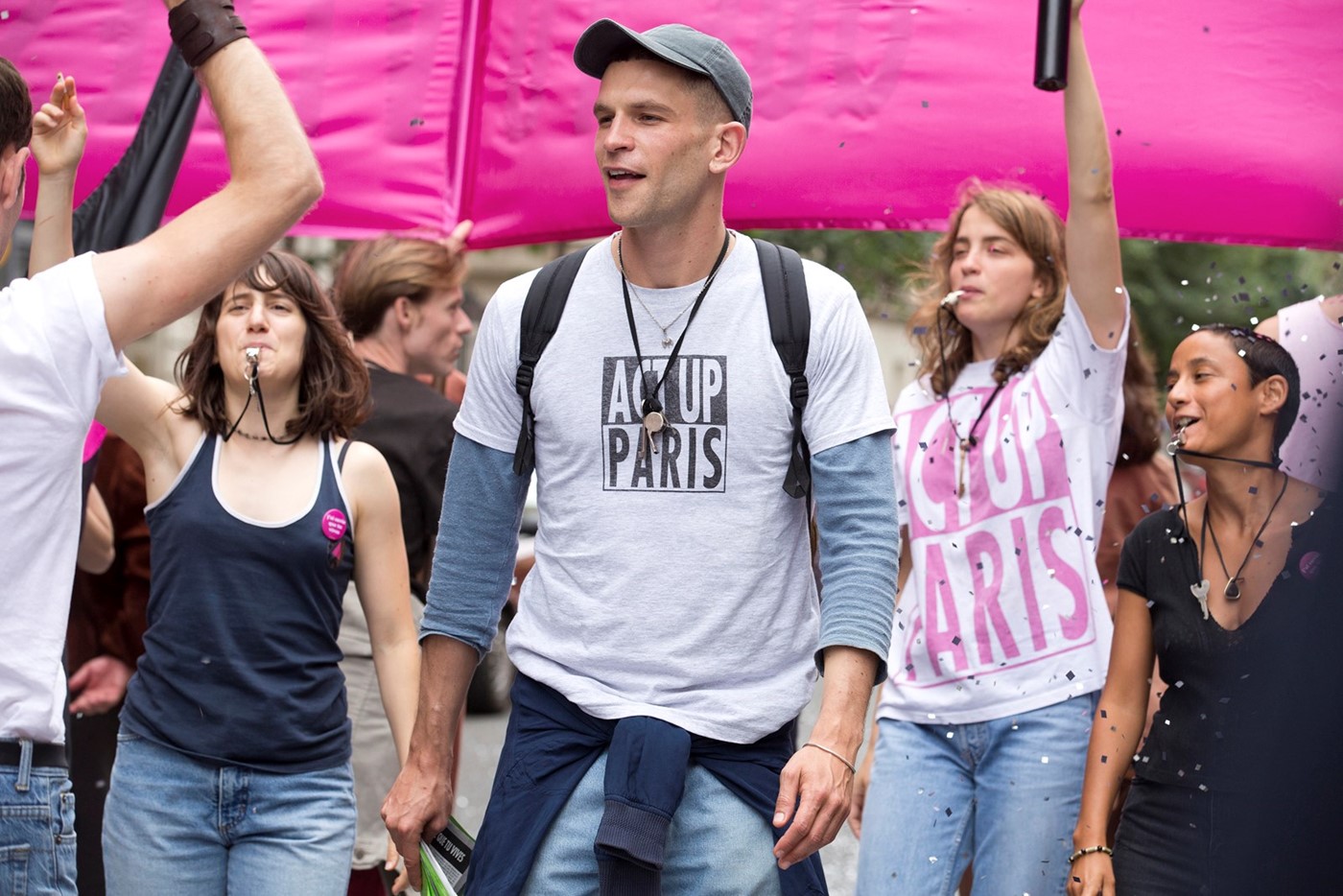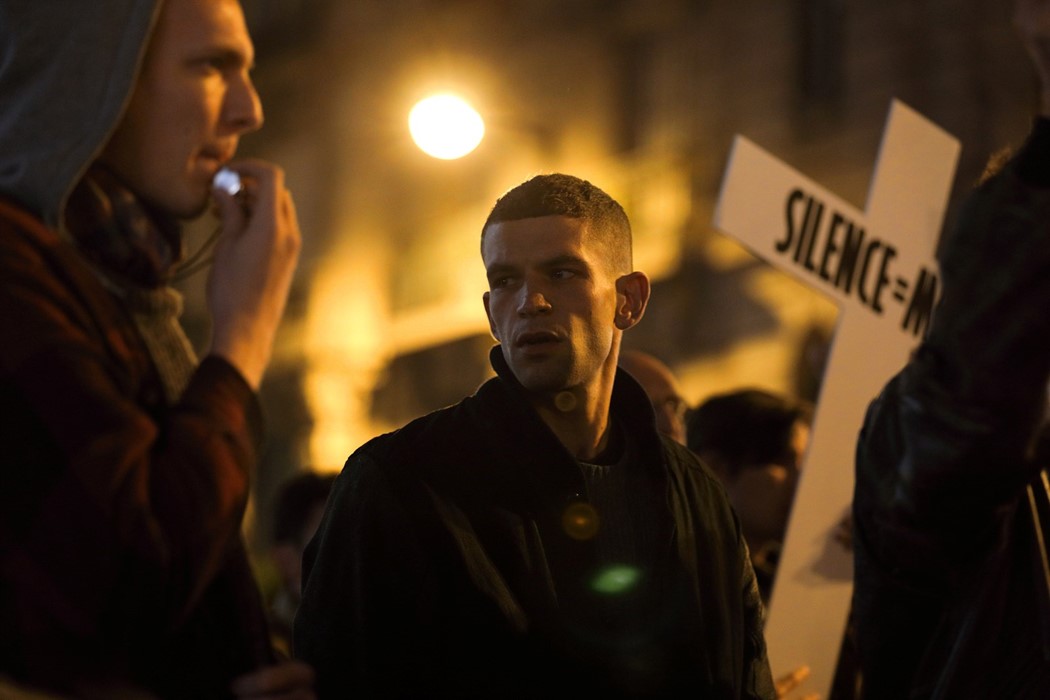Meet the Stars of 120 BPM: 2018’s Most Important LGBT Film
Ahead of its UK release, Nahuel Pérez Biscayart and Arnaud Valois discuss the film, the radical activists who inspired it and the ongoing importance of AIDS awareness
There’s something electric about the new film 120 BPM, and that probably stems from the people it’s based on: Act Up-Paris, the direct action group that fought for the French government recognise and respond to the AIDS epidemic.
In the early 90s, this group became prolific for their activism: they picketed religious services at Notre Dame, splattered fake blood on the facade of the Élysée Palace, lay in the streets like corpses, blocked traffic and brandished banners reading ‘Silence = Mort’ (Silence = Death).
In 120 BPM, Act Up-Paris’ story is brought to life by director Robin Campillo, who was himself a part of the group. Portraying different aspects of the story – from the group’s fiery weekly meetings, to its members own tragic struggles with the virus – the film pulls away from conventional LGBT movie tropes, creating something urgent and political.
120 BPM’s protagonists are two men battling AIDS from opposite sides: Sean, played by César prize-winner Nahuel Pérez Biscayart, who has been HIV positive since he was 16; and his lover Nathan, played by Arnaud Valois, who has managed to avoid infection. While their experiences may differ, the pair are bonded by their respect for one another and a shared desire to fight for an end to the epidemic.
Ahead of the film’s UK release tomorrow, Another Man sat down with Nahuel and Arnaud to discuss the film, its cast and how it confronts audiences with the reality of AIDS three decades after Act Up began.

Can you tell us about the situation 120 BPM is set in?
Nahuel Pérez Biscayart: It’s the beginning of the 90s. Act Up has just been created in Paris – it had existed in New York for two years already. For a decade, President Francois Mitterrand has been in power.
Arnaud Valois: It’s an important moment for the AIDS virus. Laboratories have been keeping information and medication to themselves, to see how they can monetise the treatment. The government aren’t doing anything for the gay community, sex workers or drug users affected by the virus. They’re against a lot of people; the DNA of Act Up was to shock to change their mentalities.
As actors, how did you interpret that DNA? Did you manage to meet any of the group’s original members?
NP: We did meet some of the people our characters were inspired by.
AV: But Robin was concerned about us mimicking real people. He wanted us to watch documentaries and read books about the group instead, and consider what we might do, at our age, in that kind of position.
NP: It was like our generation and theirs meeting, and finding something in between. Robin didn’t force us to recreate a certain ‘era’, but to feel the urgency and the electricity of it instead.

What surprised you the most about the group and its members?
AV: That Act Up always came first. Robin was telling us that he didn’t really remember anything else he was doing at that time – his job, his friends outside of Act Up… the dedication to the group was so impressive. They’d have meetings for three hours and then have pizza at a restaurant nearby for another two.
NP: They were fighting for their lives. That was so touching to me, because it functioned as a parallel family to them [and they felt] that sense of belonging.
Not many queer films have a queer cast – especially one that has done as well as 120 BPM. Do you think it’s casting is part of its success?
NP: I prefer not to think about that since there are more intimate things that can link you to a character. I don’t think we made this film because we’re queer. My character, Sean, was so great, if he had been straight I still could have played him.
AV: But I have to admit that when I got the call from the casting director and she asked if I wanted to try for this, I felt connected to the story. It’s very personal, but I don’t think you have to be the same as your character. Being an actor involves discovering new worlds.
NP: And being queer is about having a perception of yourself, and allowing yourself to play with it. It has nothing to do with sex or AIDS.
The film captures the epidemic at a very violent and confusing moment. Do you feel the story still holds relevance today?
NP: I don’t consider 120 BPM to be a period piece. A lot of people who aren’t aware of that time think the film is set nowadays, and that’s something that’s good about it: it’s made in a very vital way, and it’s not nostalgic, as if this issue is in the past.
AV: Back then, it was common knowledge: if you have sex, you have to use a condom. Nowadays, I don’t think we get the same message from public states. We get messages from young men and women saying they wanted to do something about prevention in their schools, because they don’t know enough about AIDS.
NP: I get messages from 15 year old boys and girls who are HIV positive – just because they just didn’t know.
I guess the film has taught many people about a world they never knew existed.
AV: It has, but I think that’s because it wasn’t made for that purpose.
NP: People who were not concerned about AIDS back then, when they see this film, they put themselves into these activists’ shoes and understand why they did what they did. The film is so raw, boiling and spontaneous: it pierces. You’re not just witnessing something that’s purely intellectual. When you touch them or stir them up – that’s the most political feeling.
AV: I met people who felt angry after the screening because they weren’t aware, and felt they should’ve done something.
NP: Some women came up to me at Cannes [Film Festival] in tears, telling me that they felt so guilty about leaving the younger generation to die in the shadows. It is educational. It invites you to join in on the story, and that’s the process we went through on the film. We were just trying to identify a spark – one that moved people.
120 BPM is released in cinemas and on VOD platforms on 6th April












